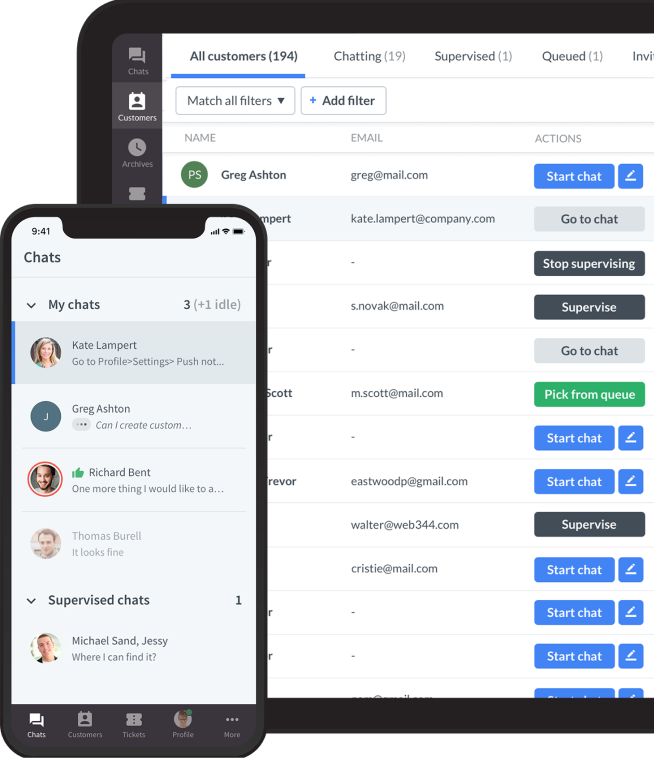
If you’re responsible for training a support team or improving service quality, you know that exceptional customer service begins with self-awareness. Helping your agents recognize their strengths, spot their blind spots, and grow their confidence is what transforms support from reactive to exceptional.
One of the most effective ways to guide that growth? Quizzes and knowledge checks.
They're not just fun training tools, but useful mechanisms for diagnosing learning gaps and encouraging real behavioral change. Well-crafted quizzes can help agents understand and apply core service principles such as empathy, active listening, and CRM use under pressure, all in the context of today’s demanding customer expectations.
In this article, you’ll find a full breakdown of how to design good customer service quizzes that go beyond rote memorization. You’ll learn how to assess key competencies, build scenario-based questions, and use quizzes to support continuous development at every level.
As a bonus, I've also included real sample trivia questions throughout, ready to use or adapt to test applied knowledge.
Customer service quizzes best practices
Customer service best practices are the invisible threads holding every great experience together. From friendly greetings to seamless follow-ups, it’s often the little things that leave the biggest impression and drive long-term customer satisfaction.
But memorizing guidelines isn’t enough. Agents need to internalize them and practice them so they become second nature. Fortunately, quizzes can help with that.
Well-designed quizzes help agents:
- Practice making judgment calls in realistic scenarios
- Explore the “why” behind tone, patience, and follow-through
- Gain clarity on what truly excellent support looks and sounds like
In the sections below, I’ll explore the key behaviors to reinforce and how quizzes can turn abstract values into everyday habits.
Friendly and patient interaction
If you’re building a quiz to evaluate frontline service skills, start here. Friendliness and patience aren’t just nice-to-have soft skills; they’re essential building blocks of a calming, trustworthy support experience. Your agents might know the policy inside and out, but if they come across as rushed or cold, even the right answer won’t feel like good service.
This quiz category is designed to help your team:
- Stay composed in emotionally charged conversations
- Maintain a warm, supportive tone, even when customers are curt or stressed
- Guide users step-by-step without showing signs of frustration
- Respond with clarity and kindness, even when the issue is repetitive or simple
Remember, patience isn’t passive; it’s a proactive tactic for de-escalation and empathy. Quizzes in this area allow agents to rehearse high-pressure situations in a safe space, so they can practice using calm language, softening defensive responses, and slowing down when the customer needs emotional reassurance more than speed.
Training insight: You can’t “teach” someone to be kind, but you can coach them to express it consistently, even in difficult moments. That’s what these assessments are for.
Smart quiz formats to use:
- Side-by-side tone comparisons: “Which reply feels calmer and more supportive?”
- Scenario escalations: “How would you handle a second angry message from a delayed order?”
- Step-by-step simulations: “Choose the next best response in a tense live chat thread.”
According to American Express, 68% of customers believe a polite and friendly agent is key to a positive service experience, even more than speed or resolution.
Active listening and positive language (in context)
As someone designing training programs, you already know that active listening and positive language are two of the most powerful tools in any agent’s skill set. But teaching them in isolation, without emotion, urgency, or context, often limits their effectiveness.
Real learning happens when agents apply these skills in layered, high-stakes scenarios where tone, timing, and empathy matter.
That’s why this quiz category emphasizes situational practice and emotional nuance:
- Can your agents stay composed when they have to deny a refund, without sounding cold or dismissive?
- Can they identify the true concern buried in a long, frustrated message?
- Can they reframe limitations in language that’s constructive, solution-focused, and emotionally intelligent?
These assessments help agents rehearse not just words, but delivery. They test emotional control, tonal flexibility, and the ability to sound grounded and respectful, even when the conversation isn’t going the customer’s way.
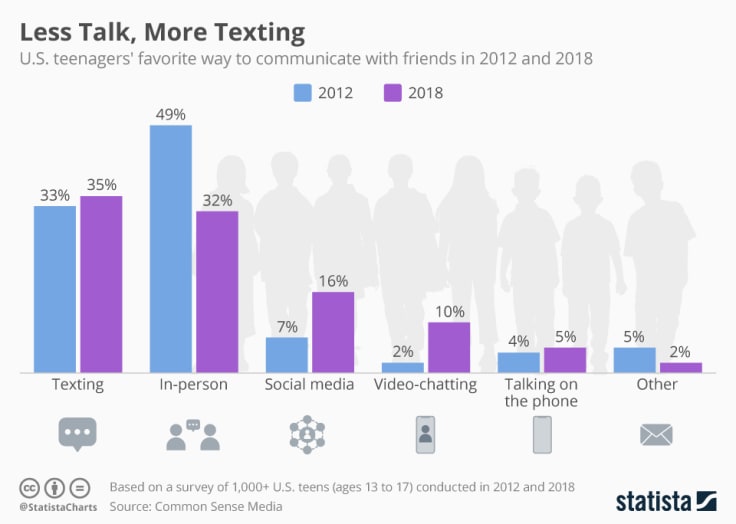
To take this further, consider incorporating the SOLER technique into your training approach:
- S: Sit squarely to the customer (or face them directly in video/chat settings)
- O: Open posture (avoid crossing arms or appearing closed off)
- L: Lean in slightly to signal engagement
- E: Eye contact (maintain appropriate, steady contact to build trust)
- R: Relax (keep a calm, non-defensive presence)
Even in remote or text-based interactions, these cues translate into how agents express concern and care through word choice, timing, and tone. For example, consistent use of validating phrases (“I hear you,” “That sounds frustrating,” “Let me look into that for you”) can signal the same attentiveness as eye contact would in person.
Training tip: Use long-form chat transcripts or customer emails in your quizzes. Ask agents to rewrite negative phrasing, highlight missed cues, or draft a more empathetic reply.
Multi-channel strategy
If you’re designing training for a modern support team, teaching a multi-channel strategy isn’t an option; it’s core. Customers today engage on chat, email, phone, Instagram DMs, and everything in between. As a quiz creator, your goal is to help agents recognize that one size does not fit all.
Great assessments in this category prompt learners to ask:
- “How would my tone change in a tweet versus a help ticket?”
- “What does a helpful response look like on a public forum vs. private live chat?”
- “Can I keep the brand voice consistent while tailoring my response style to the platform?”
Including quizzes that simulate cross-platform interactions, coaches agents to become fluid communicators who can adapt their tone, structure, and level of urgency depending on the channel. This leads to faster, more natural service and a consistent customer experience, no matter where the conversation begins.
Pro tip: Include sample tweets, chat logs, and email excerpts side-by-side. Ask agents to spot what's working, and what needs adjusting, to maintain tone, clarity, and context.
Paraphrasing for clarity
Paraphrasing is one of those deceptively simple skills that make or break a conversation. As someone crafting training content, you know how crucial it is for agents to reflect and confirm customer concerns before jumping into solutions.
That’s why this quiz category focuses on precision, clarity, and communication finesse.
Great paraphrasing quizzes:
- Present vague or emotional customer messages and ask for the best restatement
- Include multiple “okay-sounding” options to test for nuance and tone
- Encourage a balance of accuracy + empathy
Reinforcing this skill through quizzes helps agents eliminate assumptions, reduce errors, and demonstrate to customers that they are truly being heard. Doing so builds trust and sets the tone for smoother, more productive conversations.
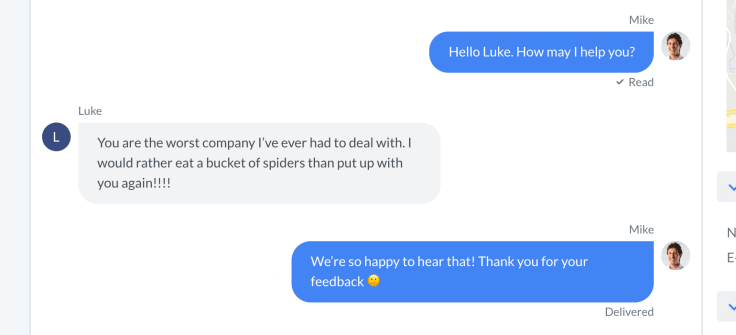
Service recovery
No matter how good your team is, things will go wrong: a missed SLA, a product bug, a broken promise. The real test of service quality comes down to how your agents handle the aftermath.
This quiz category gives them that exact practice, without the stakes of a real customer on the line.
You’ll challenge agents to:
- Choose the best response to a disappointed or angry customer
- Recognize when to offer restitution and when to escalate
- Demonstrate ownership without being defensive
- Prioritize tone, follow-through, and post-resolution follow-up
These aren’t just soft skills, but brand-reputation skills. By training service recovery, you empower your team to turn bad moments into loyalty-building wins.
Did you know that 70% of customers whose complaints are resolved well say they’d buy from that company again?
Reducing friction
Customers today want quick, clear, and painless experiences. However, many support interactions are still bogged down by too many steps, long instructions, or unclear directions. This is where you, as the quiz creator, get to reinforce the art of simplification.
In this category, agents will practice:
- Choosing between two support responses, one efficient, one bloated
- Spotting unnecessary steps in a help flow
- Rewriting confusing replies into clean, actionable answers
- Predicting and preempting the customer’s next question
The goal isn’t to rush, it’s to be helpful without hassle. Every click saved and sentence clarified increases CSAT and reduces support fatigue.
Fun fact: According to the CEB, reducing customer effort is more predictive of loyalty than delighting them.
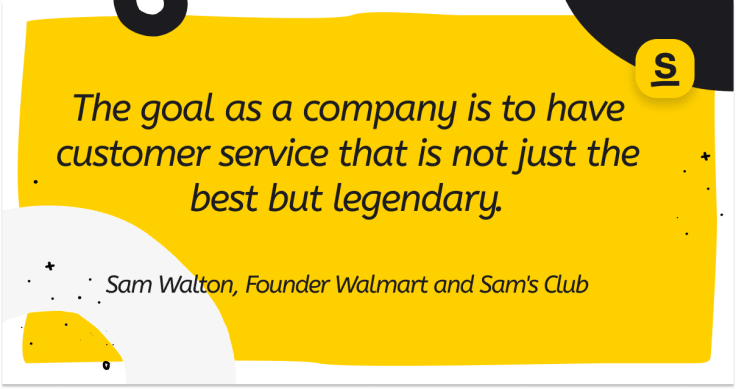
How to build or choose the right customer service quiz
A well-designed customer service quiz fosters growth, identifies strengths, and uncovers areas for development. Whether you're building one from scratch or selecting an existing solution, choosing the right format and tools makes all the difference.
What features should you look for in an excellent customer service quiz?
- Clear explanations for each answerA quiz alone does not tell whether an answer is right or wrong. Look for quizzes that offer concise, insightful explanations. This transforms the assessment into a learning opportunity and reinforces understanding, especially around nuanced or scenario-based questions.
- Feedback on strengths and gapsEffective quizzes provide detailed performance analysis. Ideally, results should highlight strong areas, like problem-solving or empathy, and flag specific gaps, such as tone control or product knowledge. This type of feedback allows individuals and managers to tailor learning paths.
- Relevance to job roleA quiz for a frontline support agent should differ from one aimed at a team lead or support operations analyst. Great tools allow segmentation by role or offer customizable question banks to ensure alignment with job-specific responsibilities.
- Tools that support team-wide or personal useWhether you’re running onboarding for a new hire cohort or conducting a personal skills audit, the tool should offer flexibility. Look for platforms that support assigning quizzes to teams, tracking completion rates, and exporting results, while still being intuitive enough for individual users to self-assess.
- Free and paid tools with templates and scoring systemsIf you're looking to save time, explore platforms that offer built-in templates tailored to customer service scenarios. Tools like Typeform, Google Forms (with Flubaroo for scoring), or Quizizz can work for basic needs. More advanced, paid options like TalentLMS, ProProfs, or Kahoot! for Business often include analytics dashboards, adaptive scoring, and integration with learning systems.
Popular questions in customer service quizzes
The best quizzes help shape team members' behavior. Each type of question is an opportunity to coach better communication and more confident decision-making, all of which contribute to higher customer satisfaction.
Understanding the different formats allows you to design assessments that truly grow your agents’ day-to-day performance.
Let’s break down the types of questions and useful examples.
1. Scenario-based judgment questions
Scenario-based questions are designed to simulate real-world customer service interactions. You’re given a realistic situation and then asked to choose the most appropriate course of action. These questions often present multiple “correct-sounding” options to test your ability to prioritize empathy, clarity, and professionalism under pressure.
They assess not only what you know, but also how you think. Through this, they determine if you can apply soft skills, such as emotional intelligence, problem-solving, and tone management, in dynamic and often tense customer-facing situations.
- A customer writes in, furious that their subscription was auto-renewed. What’s your best first step?
- A customer is repeatedly asking for a feature your product doesn’t support. What should you do?
- You receive a chat from a visibly frustrated customer who has waited 10 minutes for a response. What do you say?
- A VIP customer asks for a service that’s typically outside your scope. How do you proceed?
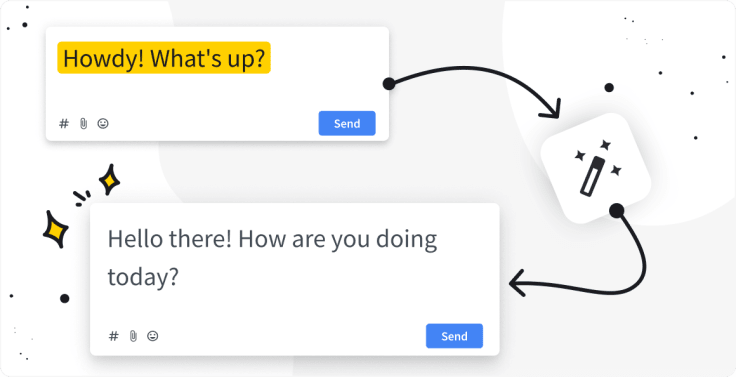
2. Skill-specific prompts
Skill-specific prompts focus on micro-behaviors in good customer service that can make or break a support interaction. These questions isolate a single soft skill, like paraphrasing, tone, or hold etiquette, and challenge you to choose the most effective expression of that skill.
Excellent service isn't just about what you say, it’s how you say it.
These questions sharpen your language choices and encourage proactive and emotionally intelligent communication habits.
- Which of these is the best way to ask a customer to wait?
- What’s the most constructive way to phrase a service limitation?
- What is the best paraphrasing of this customer message: “I’m frustrated that no one followed up after my ticket.”
- Which version uses the most positive language?
3. True or false/multiple choice questions
These are foundational questions that test your understanding of customer service facts, and terminology. They can reinforce important truths, correct common misconceptions, or confirm familiarity with service metrics and standards.
While soft skills are critical, knowing key concepts, like Net Promoter Score, AHT, or the Service Recovery Paradox, grounds agents in the broader goals of customer experience. These questions are fast, focused, and great for knowledge checks.
- True or False: The faster an agent resolves a case, the more satisfied the customer will be.
- What does the Service Recovery Paradox suggest?
- Which of the following is not a valid customer service KPI?
- True or False: Net Promoter Score measures how likely a customer is to recommend your product.
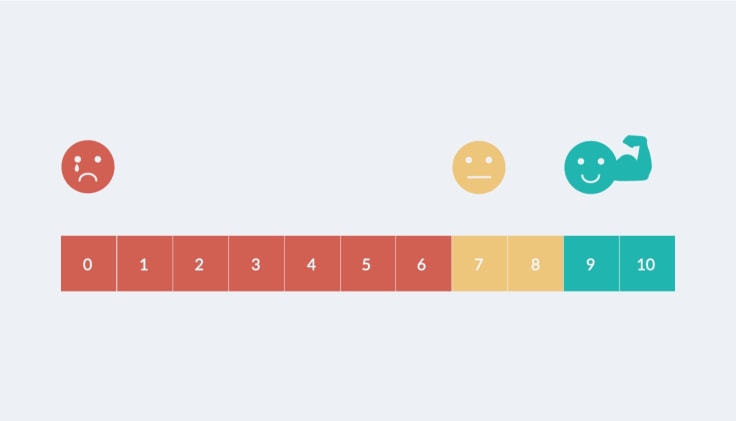
4. Terminology and concept questions
These questions test your grasp of the tools, acronyms, and technical concepts used in customer service roles. They can include CRM systems, analytics metrics, and industry jargon you’re expected to understand and apply in context.
Beyond soft skills, strong service reps are technically competent and fluent in customer operations' language. These questions support onboarding, help establish team-wide consistency, and make coaching more efficient.
- What does AHT stand for?
- Which tool helps consolidate customer interaction history across channels?
- Statistical significance testing helps customer service teams:
- Root cause analysis helps you:
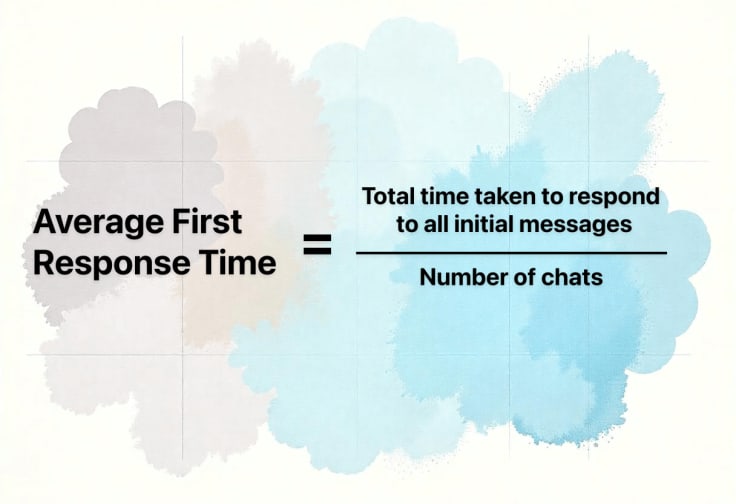
5. Reflection or self-evaluation questions
Reflection questions ask the quiz-taker to assess their confidence, familiarity, or comfort with certain tasks or scenarios. These are often used in training programs to personalize learning paths or guide coaching discussions.
These questions don’t have “right” answers. Instead, they surface internal perceptions, spark awareness, and lay the foundation for targeted improvement plans. They’re ideal for managers tracking team readiness or for learners who want to own their growth.
- How confident are you when dealing with a frustrated customer via live chat?
- Do you feel you have enough tools to personalize support for each customer?
- Rate your ability to multitask while handling 3+ live chats simultaneously.
- Which area do you feel needs the most development?
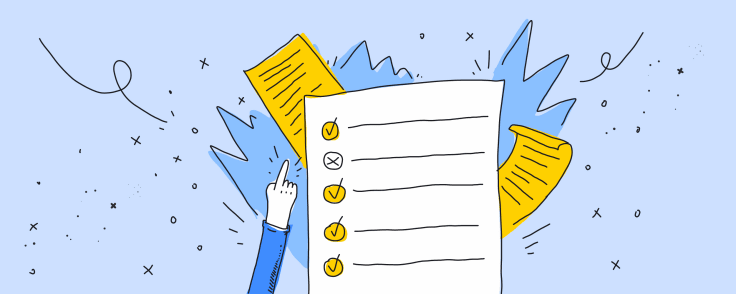
6. Behavioral response simulations
These simulate emotionally charged or high-pressure situations and test your ability to respond calmly and constructively. They often challenge you to de-escalate conflict or guide customers toward a resolution.
These questions bridge the gap between theory and practice. They assess whether you can keep composure, use the right language, and turn potentially negative interactions into positive outcomes.
- A customer says, “I’ve had it with your company. I want a refund now.” What’s your best response?
- You accidentally gave incorrect information in a previous chat. How do you follow up?
- A customer is angry and threatens to post a bad review. What should you do?
Boost customer service skills with trivia questions
Quizzes and interactive assessments are a powerful way to turn passive knowledge into daily practice. They help agents build empathy, master tools, and handle even the toughest conversations with clarity and confidence. When paired with modern customer service technology, these learning moments become transformative and directly contribute to stronger customer satisfaction.
That’s why using the right tools matters just as much as the right training. Platforms like LiveChat empower support teams to put their customer service skills into action, combining live support, ticketing, multichannel messaging, and customer insights all in one place. It’s everything you need to turn great training into great communication and great service.
Explore LiveChat’s customer service features to see how you can deliver faster, more personalized, and more satisfying support, right when your customers need it most.

